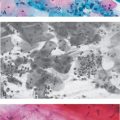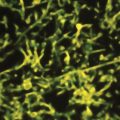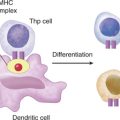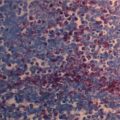CASE 36
You are looking after a 60-year-old male patient with renal carcinoma. The patient is due for surgery in 2 days, and you are investigating follow-up immunotherapies you might offer this patient, besides conventional chemotherapy. Discuss some of the options.
QUESTIONS FOR GROUP DISCUSSION
RECOMMENDED APPROACH
Implications/Analysis of Laboratory Investigation
Diagnosis may involve urography (radiography of the urinary tract that is preceded by intravenous injection of a dye that is excreted by the kidney) and renal angiography (imaging of arteries that bring in blood to the kidneys) in the presence of the clinical symptoms described.
THERAPY
Tumor-Infiltrating Lymphocytes
Pulsed Dendritic Cells Using Crude Extracts
Technique
Peripheral blood lymphocytes are obtained from the patient, and CD34+ cells (dendritic cell precursors) can be isolated using antibodies specific for CD34 antigen. These CD34+ cells are grown in bulk in vitro in the presence of GM-CSF and IL-4, which are potent dendritic cell growth factors. After 9 to 10 days, the dendritic cell population is “pulsed” in vitro with a crude extract of tumor antigen (e.g., a tumor cell lysate) and the mixture is re-infused in vivo alone, or again in the presence of additional cytokines. In some variants of this therapy, dendritic cells are first transfected with genes for additional cytokines.







